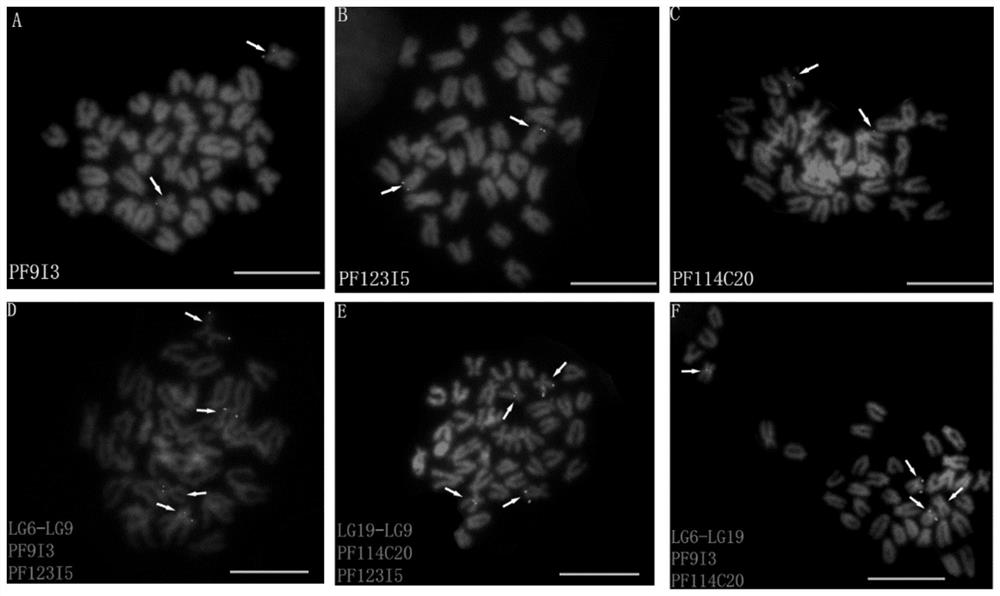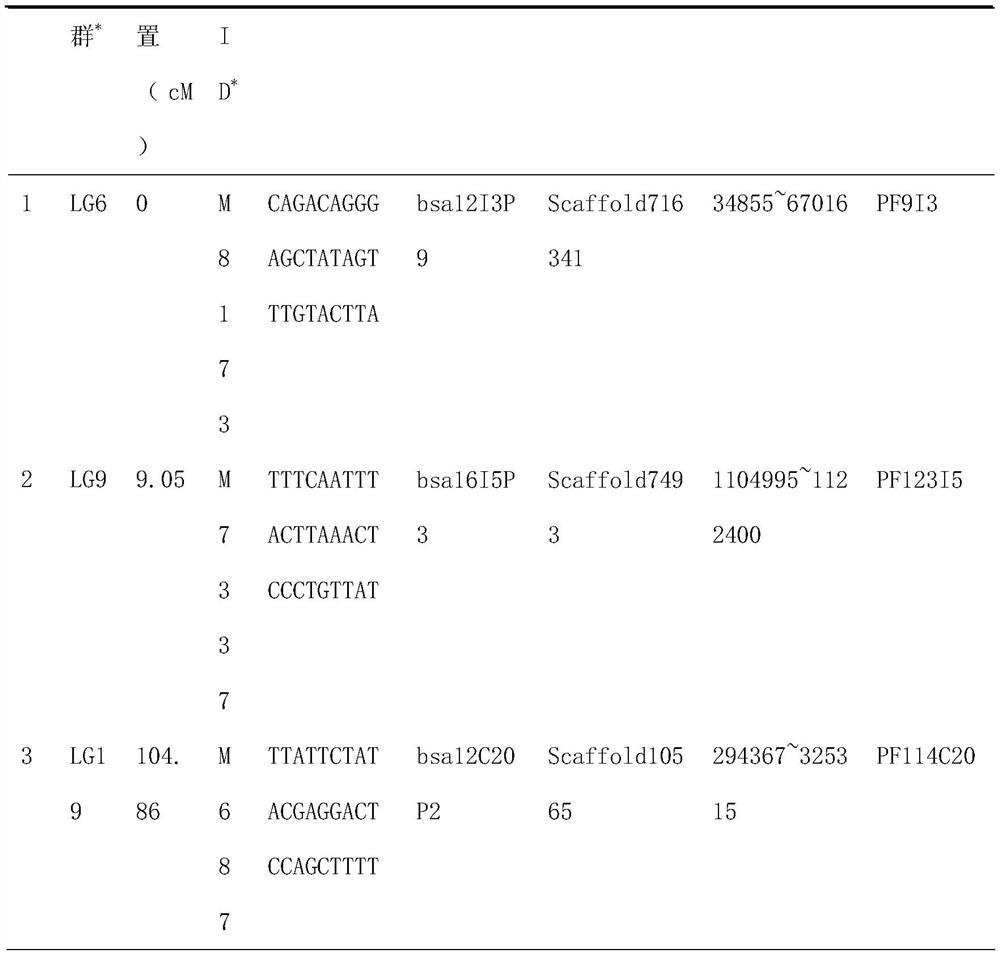A probe for identifying centromere chromosome in the middle part of Ezo scallop and its preparation method
A scallop and chromosome technology, applied in the field of shellfish chromosome research, to achieve the effect of easy distinction and obvious signal
- Summary
- Abstract
- Description
- Claims
- Application Information
AI Technical Summary
Problems solved by technology
Method used
Image
Examples
Embodiment 1
[0029] Embodiment 1: the preparation of probe
[0030] 1) Fosmid monoclonal screening: According to the integration of the SNP linkage map and the chromosome map of Scallop scallops, the three SNP markers screened by the three linkage groups LG6, LG9 and LG19 correspond to the middle centromere chromosome of Scallop scallops.
[0031] SNP marker M8173 identifying the first pair of middle centromere chromosomes, the nucleotide sequence of which is CAGACAGGGAGCTATAGTTTGTACTTA (SEQ ID NO: 1);
[0032] The SNP marker M7337 identifying the second pair of middle centromere chromosomes has a nucleotide sequence of TTTCAATTTACTTAAACTCCCTGTTAT (SEQ ID NO: 2);
[0033] SNP marker M687 identifying the third pair of middle centromere chromosomes, the nucleotide sequence of which is TTATTCTATACGAGGACTCCAGCTTTT (SEQ ID NO: 3);
[0034] The above-mentioned SNP markers were used to prepare probes for mapping the three pairs of mesocentromere chromosomes of Scallop scallops.
[0035] First, ...
Embodiment 2
[0041] Example 2: Mapping Chromosomes Using Probes
[0042]1) Chromosome preparation: use a 500-mesh sieve to collect trochophore larvae, use 0.01% colchicine for 2.5 hours to fix the larvae, then use 0.075M KCL to perform hypotonic treatment on the larval material for 30 minutes, and then The material is placed in freshly prepared Carnot's reagent, and the Carnot's reagent is replaced three times. Here, the material can be stored at -20°C for a long time, and then dissociated with freshly prepared 50% acetic acid for 5-10 minutes. The hot drop method was used to prepare the slides, the chromosome material was fixed on the glass slide, and placed in an oven at 60°C for 2 to 3 hours to make the chromosome material closely adhere to the glass slide and prevent the chromosome material from falling off during the hybridization process. References for chromosome preparation (Huang et al. al. 2007. Mapping of ribosomal DNA and (TTAGGG)n telomeric sequence by FISH in the bivalve Pati...
PUM
 Login to View More
Login to View More Abstract
Description
Claims
Application Information
 Login to View More
Login to View More - R&D
- Intellectual Property
- Life Sciences
- Materials
- Tech Scout
- Unparalleled Data Quality
- Higher Quality Content
- 60% Fewer Hallucinations
Browse by: Latest US Patents, China's latest patents, Technical Efficacy Thesaurus, Application Domain, Technology Topic, Popular Technical Reports.
© 2025 PatSnap. All rights reserved.Legal|Privacy policy|Modern Slavery Act Transparency Statement|Sitemap|About US| Contact US: help@patsnap.com



